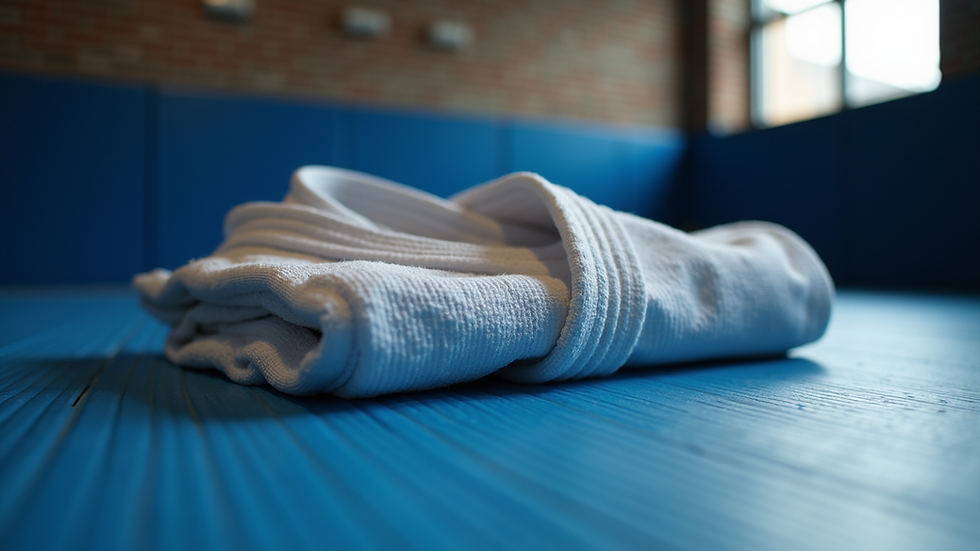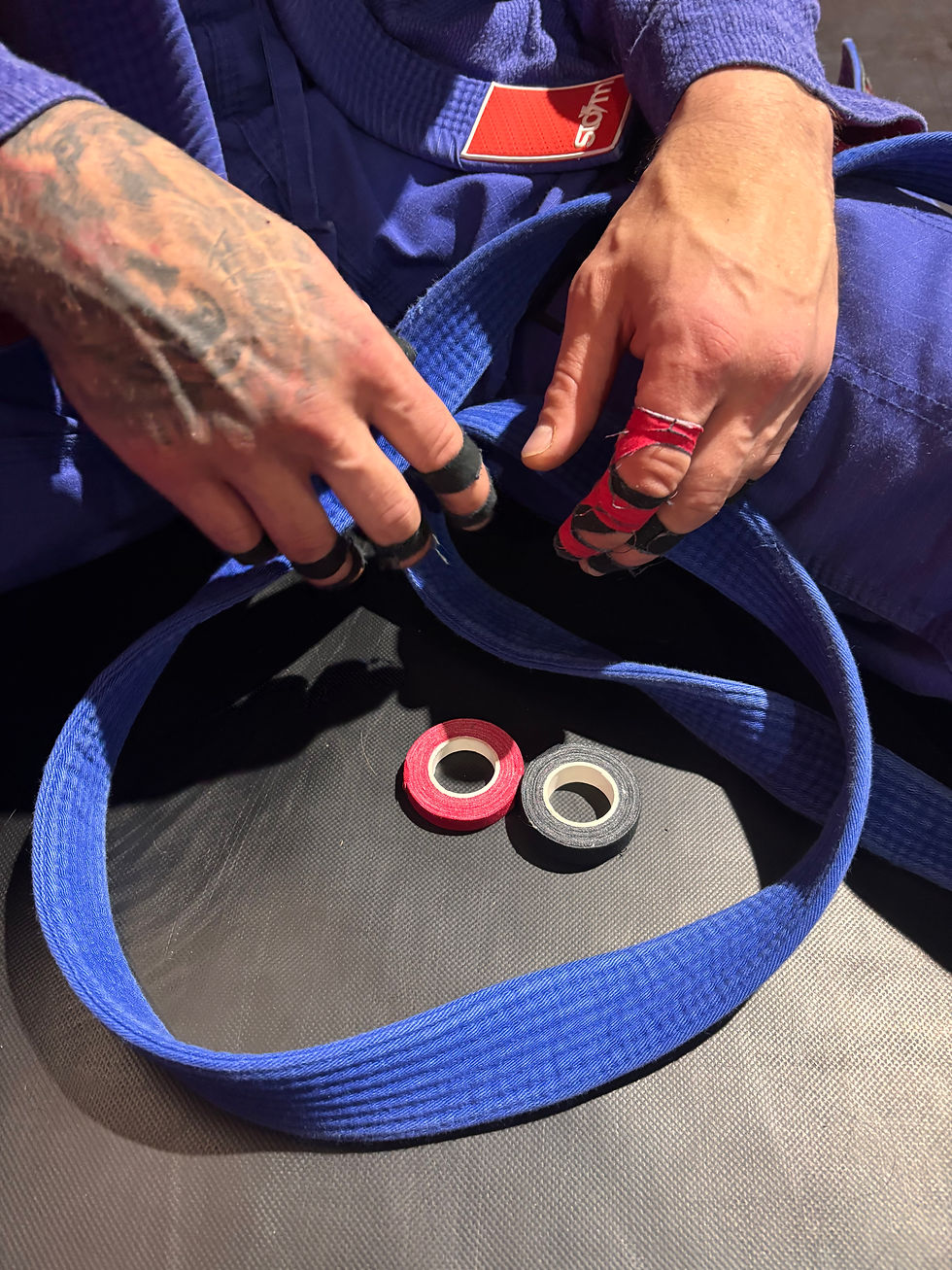Essential Gear for a Successful BJJ Training Session
- A. Zagorov

- Aug 4, 2025
- 4 min read
Brazilian Jiu-Jitsu (BJJ) is a demanding martial art that requires not only skill and technique but also the right equipment to train effectively and safely. Whether you are a beginner or an experienced practitioner, having the essential gear can make a significant difference in your training sessions. This guide will walk you through the must-have items for a productive and enjoyable BJJ training experience.
Preparing for BJJ Training: What You Need to Know
Before stepping onto the mat, it’s important to prepare yourself with the right gear. Proper preparation helps prevent injuries, improves comfort, and enhances your overall performance. Here are some key items to consider:
Gi or No-Gi Attire: Depending on your training style, you will need either a traditional gi or no-gi clothing such as rash guards and shorts. The gi is a kimono-like uniform made of durable cotton, essential for gripping techniques. No-gi attire is lighter and allows for faster movement.
Mouthguard: Protecting your teeth and jaw is crucial during sparring. A custom or boil-and-bite mouthguard can absorb impact and reduce the risk of injury.
Water Bottle: Staying hydrated is vital during intense training sessions. Bring a refillable water bottle to keep yourself refreshed.
Towel: A small towel helps you wipe off sweat and maintain hygiene on the mat.

Essential Gear for BJJ Training Sessions
Having the right gear can boost your confidence and help you focus on learning and improving your techniques. Here’s a detailed list of essential items:
1. BJJ Gi or No-Gi Apparel
Your choice between gi and no-gi depends on your training preferences and the gym’s focus. A gi is made from thick cotton and designed to withstand gripping and pulling. It usually consists of a jacket, pants, and a belt that indicates your rank. For no-gi training, opt for moisture-wicking rash guards and grappling shorts that provide flexibility and comfort.
2. Protective Equipment
In addition to a mouthguard, consider knee pads or elbow pads if you have sensitive joints or previous injuries. These can provide extra cushioning and prevent abrasions during rolling.
3. Hygiene Essentials
BJJ is a close-contact sport, so hygiene is paramount. Bring antibacterial soap for post-training showers, and keep your gear clean by washing it after every session. Using an anti-fungal spray on your gi or rash guard can help prevent skin infections.
4. Grip Aids and Tape
Grip strength is essential in BJJ, especially when training with a gi. Some practitioners use grip aids or tape to protect their fingers and improve grip durability. For example, bjj tape is designed specifically for martial artists to support joints and prevent injuries without compromising flexibility.

5. Training Bag
A sturdy training bag helps you carry all your gear conveniently. Look for one with multiple compartments to separate clean and dirty clothes, shoes, and accessories.
What is the best sports tape for Jiu-Jitsu?
Choosing the right sports tape can make a big difference in your training comfort and injury prevention. The best tape for Jiu-Jitsu should be:
Durable: It must withstand sweat, friction, and repeated movements.
Flexible: Allows natural joint movement without restricting mobility.
Adhesive: Sticks well to skin and fabric but is easy to remove without causing irritation.
Breathable: Prevents excessive sweating and skin discomfort.
Many BJJ practitioners prefer kinesiology tape or specialized martial arts tape that offers support for fingers, wrists, and ankles. These tapes help stabilize joints during intense grappling and reduce the risk of sprains or strains. When selecting tape, consider your specific needs and any past injuries to choose the best option.

Additional Accessories to Enhance Your Training
Beyond the basics, some accessories can improve your training experience and help you progress faster:
Foam Roller: Useful for warming up and recovering muscles after training.
Resistance Bands: Great for strength and mobility exercises that complement BJJ techniques.
Finger Tape: Besides regular sports tape, finger tape is essential for protecting the small joints in your hands from overuse injuries.
Training Journal: Keeping notes on techniques learned, sparring experiences, and goals can help track your progress.
Tips for Maintaining Your BJJ Gear
Proper care of your gear ensures longevity and hygiene. Here are some practical tips:
Wash your gi and rash guards after every session using cold water and mild detergent.
Air dry your gear to prevent shrinkage and fabric damage.
Store your equipment in a well-ventilated bag to avoid unpleasant odors.
Regularly inspect your tape and replace it when it loses adhesiveness.
By taking good care of your gear, you’ll save money and maintain a professional appearance on the mat.
Getting the Most Out of Your BJJ Training Sessions
Having the right gear is just one part of a successful training session. Here are some additional recommendations:
Arrive early to warm up properly and mentally prepare.
Communicate with your training partners about intensity levels and any injuries.
Focus on technique rather than strength to improve efficiently.
Stay consistent with your training schedule to build skills and endurance.
With the right mindset and equipment, you’ll enjoy your BJJ journey and see steady progress.
Investing in quality gear and taking care of it will enhance your Brazilian Jiu-Jitsu training experience. From the gi to protective tape, each item plays a role in your safety and performance. Equip yourself well, train smart, and embrace the challenges on the mat.








Comments